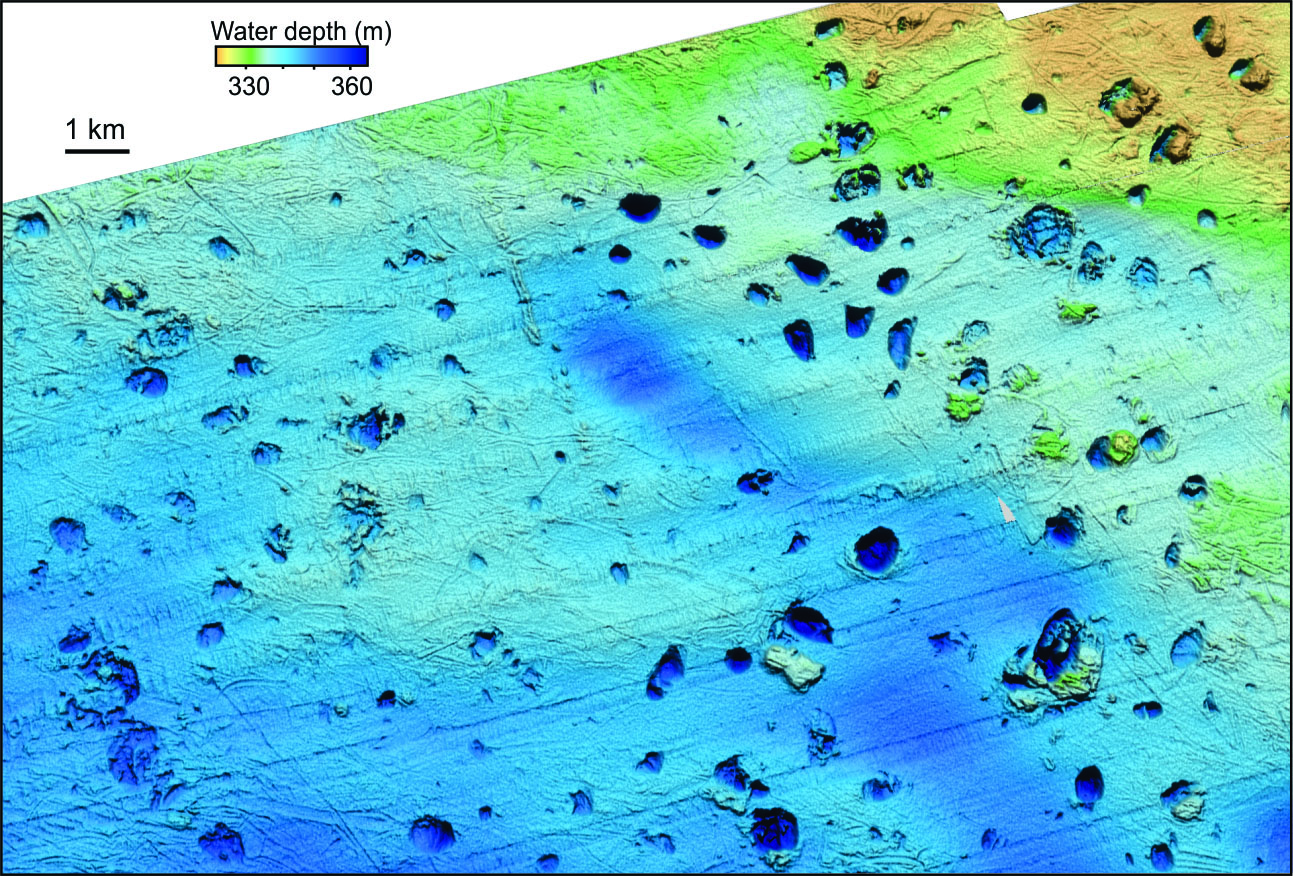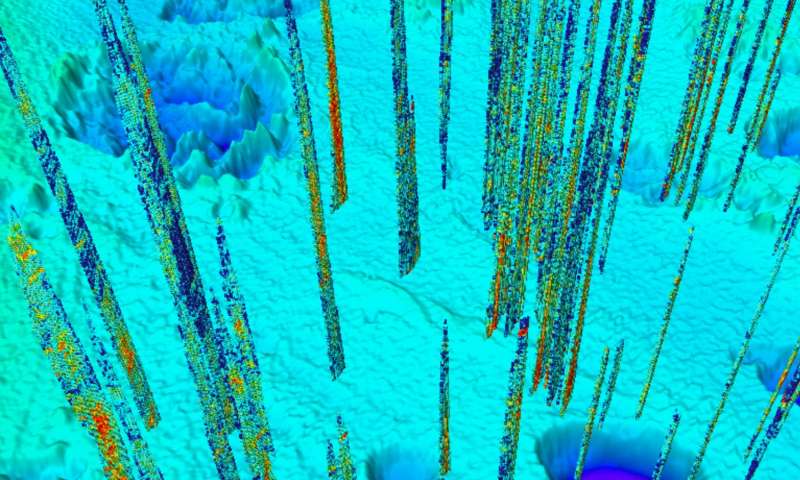Science: Rapid Ice Sheet Retreat Led To Rapid Methane Hydrate Release @ End Of Last Ice Age
At the end of the last ice age, a warming world released a portion of its carbon stores into the atmosphere. The result was, ultimately, an increase in atmospheric CO2 by around 100 parts per million and in increase in atmospheric methane by around 300 parts per billion. This increase in greenhouse gasses was a direct response to the Earth warming by approximately 4 degrees Celsius over the course of about 10,000 years. Under a present human-forced warming that is currently 1.2 C above late 19th Century averages and that is predicted to reach between 3.3 and 7 C warming this Century if fossil fuel burning continues, it is important to consider what additional carbon forcing the Earth System will produce under such an extreme and short-term temperature departure.
 ?w=600&h=406
?w=600&h=406
One subject of concern is the behavior of methane hydrate deposits under warming conditions. It is estimated that upward of trillions of tons of hydrate exist in various frozen deposits around the world. And that even a fractional release from these deposits could contribute to the increasing greenhouse gas overburden in our atmosphere and further exacerbate warming. A potential for such a release in the short term would add risk of increased warming this Century on top of planned emissions from human fossil fuel burning — adding urgency to already necessary rapid emissions cuts (and a related swift transition to renewable energy based economies).
This past week, a new study entitled — Massive blow-out craters formed by hydrate-controlled methane expulsion from the Arctic seafloor — lends credence to concerns regarding hydrate release as a potential amplifier to human warming. The study found that as ice sheets retreated and as pressure was relieved from the sea floor near Svalbard 12,000 years ago, pockets of methane hydrate rapidly migrated toward the surface as they turned to gas. This newly gasified methane formed large, high-pressure, mounds on the sea floor. Such mounds were unstable. Sensitive to changes in the local environment, they generated explosive outbursts which released considerable volumes of methane into the ocean and ultimately also added heat-trapping carbon to the Earth’s atmosphere.
The lead author of the study, Karin Andreasson, a professor at the CAGE Centre for Arctic Gas Hydrate, Environment and Climate noted in Phys.org last week that: "As [the] climate warmed, and the ice sheet collapsed, enormous amounts of methane were abruptly released. This created massive craters that are still actively seeping methane."
 ?w=600&h=360
?w=600&h=360
EDIT
https://robertscribbler.com/2017/06/07/new-study-ice-sheet-retreat-led-to-rapid-methane-hydrate-release-at-end-of-last-ice-age/#comments
 ?w=600&h=406
?w=600&h=406
 ?w=600&h=360
?w=600&h=360